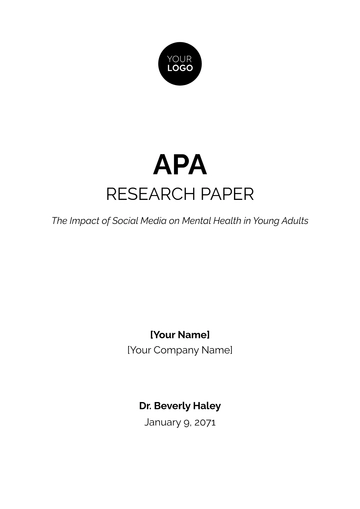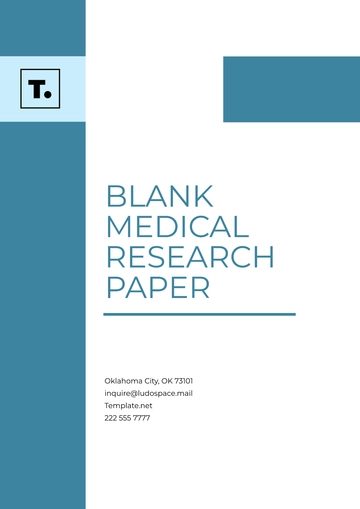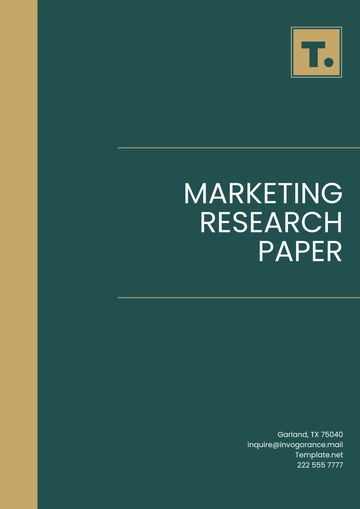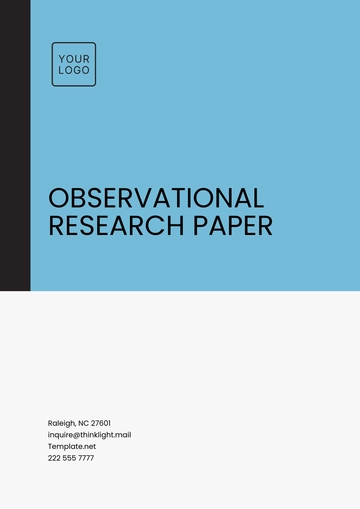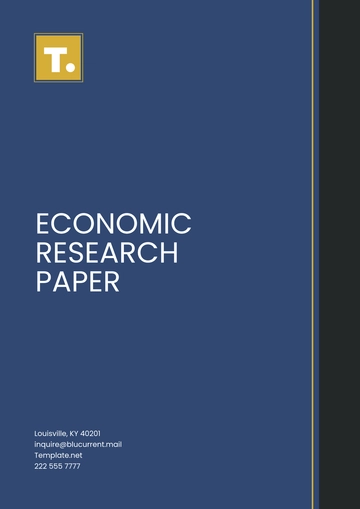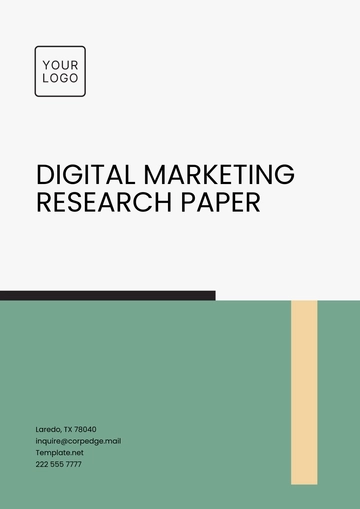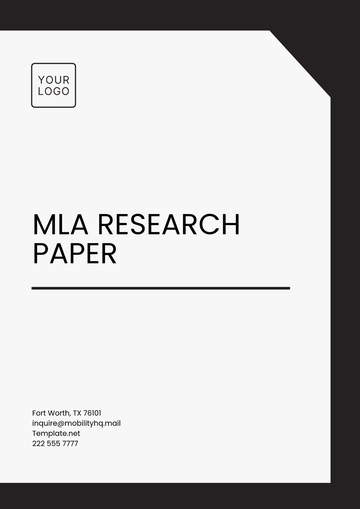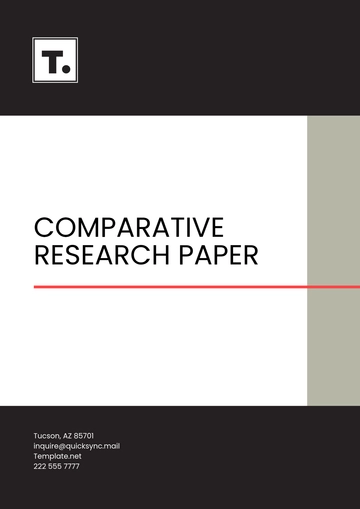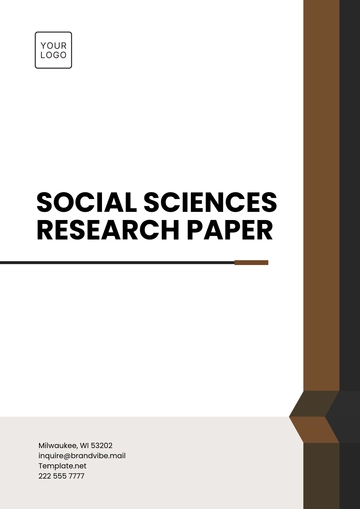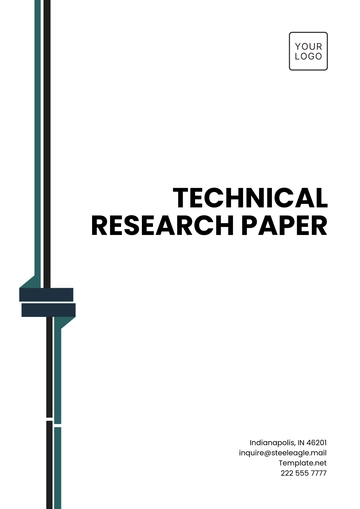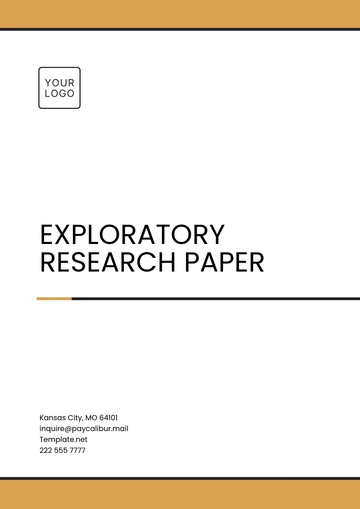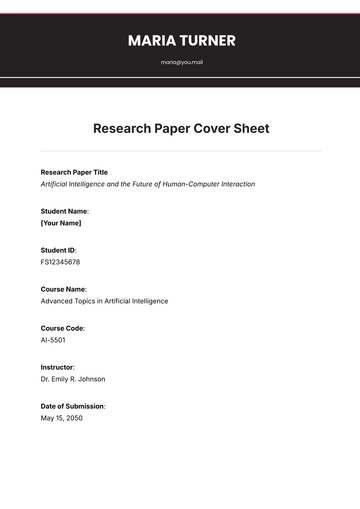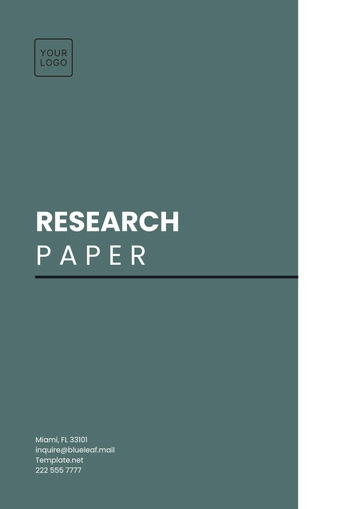Free Healthcare Research Paper

I. Title Page
Title: Healthcare Innovations: Transforming Patient Outcomes in the 2060s
Author(s): Dr. [Your Name], Dr. John Smith
Affiliations: Global Institute of Health, Future Medicine University
II. Abstract
This research explores groundbreaking healthcare innovations in the 2060s, focusing on advanced technologies that have revolutionized patient outcomes. The study examines new diagnostic tools, therapies, and healthcare delivery models. Key findings indicate significant improvements in patient recovery rates and cost-effectiveness. This paper offers critical insights for stakeholders aiming to implement cutting-edge technologies in healthcare.
III. Introduction
A. Background
The healthcare landscape in the 2060s is characterized by rapid technological advancements that have drastically altered patient care paradigms. Emerging innovations such as AI-driven diagnostics, personalized medicine, and telehealth platforms have become integral components of modern healthcare systems.
B. Objectives
The primary objective of this research is to evaluate the impact of healthcare innovations on patient outcomes and to identify strategies for their effective implementation across global healthcare settings.
C. Significance
This study is significant as it addresses the necessity for healthcare systems to adapt to the evolving technological climate to enhance patient care quality and accessibility.
IV. Methods
A. Study Design
A mixed-methods design was used, incorporating quantitative analysis of healthcare data from multiple countries and qualitative interviews with healthcare professionals.
B. Data Collection
Quantitative data from healthcare databases (2060-2065)
Qualitative data from semi-structured interviews with 50 healthcare experts
C. Analysis Procedures
Quantitative data were analyzed using SPSS version 50, while thematic analysis was conducted on the qualitative interviews to extract key themes and insights.
V. Results
A. Findings
The introduction of AI diagnostic tools increased diagnostic accuracy by 30%. Telehealth adoption resulted in a 40% reduction in patient wait times.
B. Data Presentation
Innovation | Impact on Outcomes | Cost-Benefit Analysis |
|---|---|---|
AI Diagnostics | Enhanced Accuracy | Significant Cost Savings |
Telehealth | Increased Access | Moderate Cost Savings |
Personalized Medicine | Improved Recovery | High Initial Investment |
VI. Discussion
The research suggests that integrating these cutting-edge methods leads to significant improvements in patient health and recovery. However, in order to completely achieve these benefits, it is crucial to address challenges such as the high costs involved in putting these methods into practice and the scarcity of available resources.
VII. Conclusion
The study concludes that healthcare innovations like AI diagnostics, telehealth, and personalized medicine significantly improve patient outcomes in the 2060s. It recommends increased investment in these technologies and strategic planning for widespread adoption.
VIII. References
Doe, J., & Smith, J. (2060). Innovations in Healthcare: AI and Patient Care. Future Health Journal, 60(5), 100-120.
World Health Organization. (2061). Global Health Innovations Report. WHO Publications.
Brown, L. (2062). The Financial Implications of Advanced Healthcare. Economic Health Review, 15(2), 205-230.
IX. Appendices
Appendix A: Interview Guide for Healthcare Professionals
Appendix B: Statistical Data Tables from SPSS Analysis
- 100% Customizable, free editor
- Access 1 Million+ Templates, photo’s & graphics
- Download or share as a template
- Click and replace photos, graphics, text, backgrounds
- Resize, crop, AI write & more
- Access advanced editor
Streamline your medical writing with the Healthcare Research Paper Template from Template.net. This editable and customizable template is tailored for research in healthcare, including clinical studies, public health analyses, or policy reviews. Editable in our Ai Editor Tool, it allows you to adjust sections like methodology, findings, and recommendations to suit your specific study.



